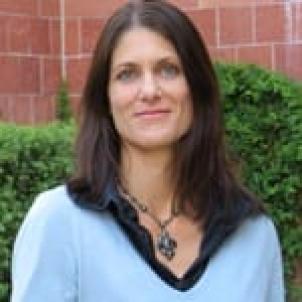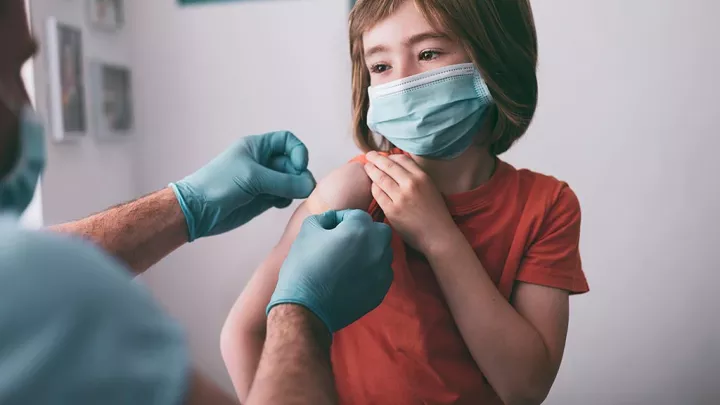The Forgotten Child

You may have noticed this child sitting patiently in the waiting room with their doll, or tablet, or book, waiting for their chronically ill brother or sister to see the doctor, or have a diagnostic study, or receive their chemotherapy. This child is often the “forgotten one.” They wait for what’s left from their caregiver. After all the medical appointments, medicines and midnight emergencies for the sick sibling are handled, parents are able to give this child only a few minutes of undivided attention.
It is sometimes hard to remember that when a child is sick, the whole family suffers, and the most silent children may be hurting too. Decades of research generally supports the fact that the presence of a chronically ill child in the family can have a significant impact on the psychosocial health of well siblings. These children are more likely to have internalizing problems (anxiety, depression), externalizing problems (aggression, disruptive behavior), behavioral regressions and less positive self-attributes. They are also at greater risk for suppressing their feelings, as they feel guilty or reluctant about seeking out their already overwhelmed parents for attention, advice, or support. In addition, research has shown that the burden on healthy siblings in these families is elevated compared to other families; more is required of them in terms of household chores and caring for other well siblings, and school and social activities are significantly reduced. A recent study suggested that this group of children is even more vulnerable to social-emotional problems than previously thought, concluding that siblings of children with chronic health care needs deserve more attention in pediatric care.

While it may seem illogical—these healthy children should be grateful that they are “well”—they have unique needs that are often unrecognized. They are struggling with their own fears of being irrelevant, invisible, and even judged for not being sick. They may be afraid to shine, in fear of outshining their sibling, or afraid to ask for anything, in fear of appearing selfish. They may wish that they could be sick, too, just to garner some of that “specialness” that is being lavished upon their sibling for being ill. But, as research has shown, they are more likely to hold it in, feeling guilty for even having these feelings, afraid of sounding ungrateful for having what their sibling doesn’t. They may even feel like their thoughts are ugly and can’t share them with anyone.

But they sit, and wait, and love their sibling. They worry when their brother or sister is sick. They fear the days when their sibling is hospitalized because not only are they separated from their sibling, but they are also often separated from their parents. And they may even be unable to visit their sibling in the hospital due to infection risks.
Medical illness or special developmental needs can place a great deal of stress on families. However, there are some things parents and families can do to help decrease the impact on their healthy children:
- Include them as helpers, and praise them for their help and patience.
- Introduce them to the doctor or medical professional in the room to let their presence be known.
- Try to make one-on-one time with them during the course of a hectic day, even if only for a few minutes.
- Keep their routines as normal as possible at home and school. Kids like to be consistent in a daily routine. Sometimes families need to create new routines while they have a family member in the hospital, and siblings can even provide input on the new routine to help them feel involved.
- When they question their sibling’s illness and hospitalization, give them simple, direct answers. If you don’t know the answer, it is perfectly okay to say, “I don’t know; that is a really good question and I will find out for you.” Research shows that children cope best when adults are honest, yet developmentally appropriate, in response to questions and have an understanding about their sibling’s illness. If your family is currently in the hospital, parents can ask a Child Life specialist, a social worker or other medical staff member for guidance on how best to answer questions.
- When healthy siblings come to visit a brother or sister in the hospital for the first time, it can be scary. Prepare them for what kinds of medical equipment they will see while in the sibling’s hospital room. At CHLA, and most children’s hospitals, a Child Life specialist can help provide support and explain medical equipment and medical diagnoses.
- Help normalize the hospital environment by providing activities and emotional support. If you are at CHLA, our Child Life specialists can help provide these activities.
Here at Children’s Hospital Los Angeles, we partner with the Elizabeth A. MacDonald Foundation for monthly evening events that siblings ages 5 years and older are invited to attend. The night is filled with fun activities to make sure siblings feel extra special.
Stephanie Marcy, PhD, is a pediatric psychologist at Children's Hospital Los Angeles, and Mary Ann Crall, CCLS, CIMI, is a Child Life specialist at CHLA.


